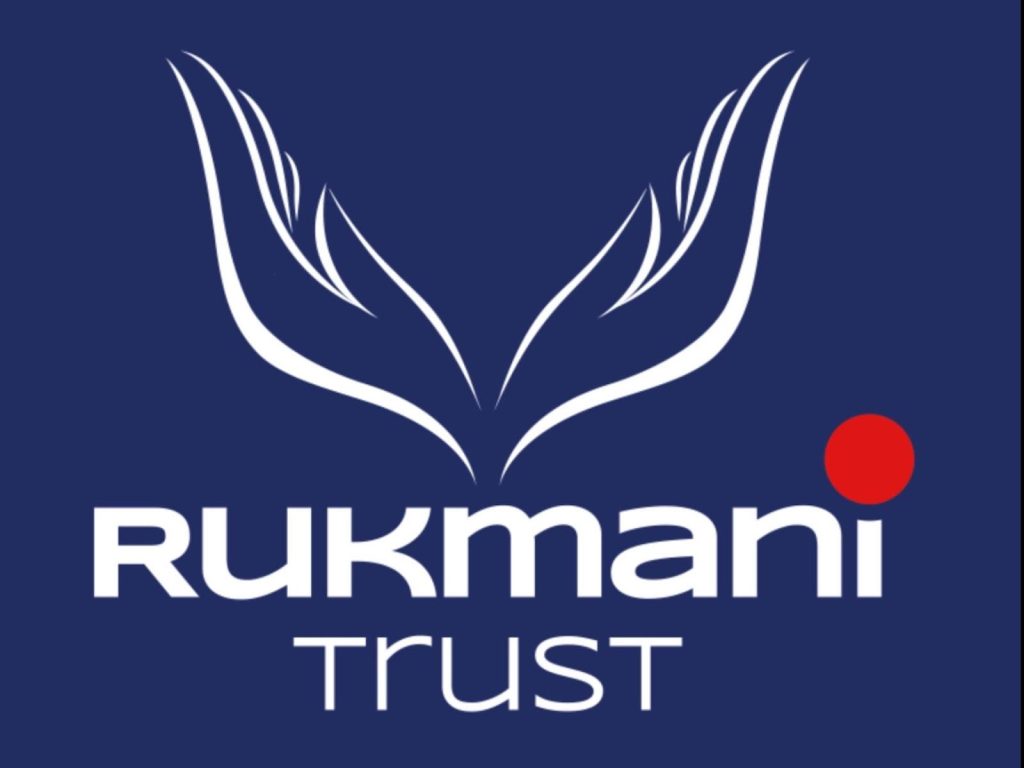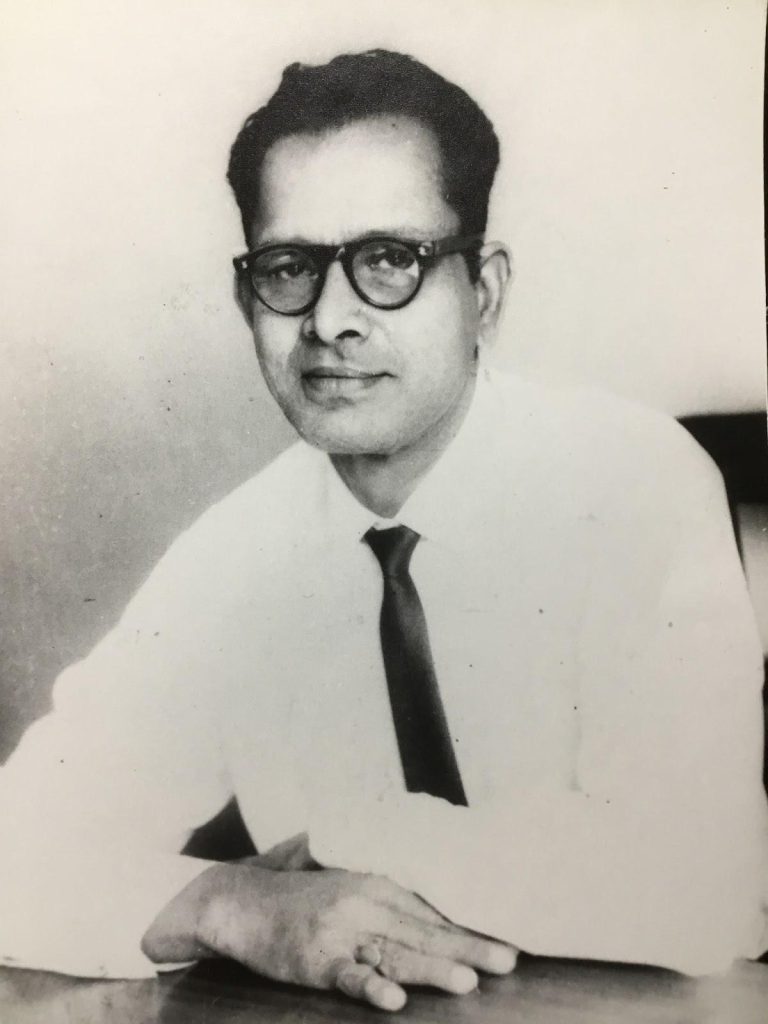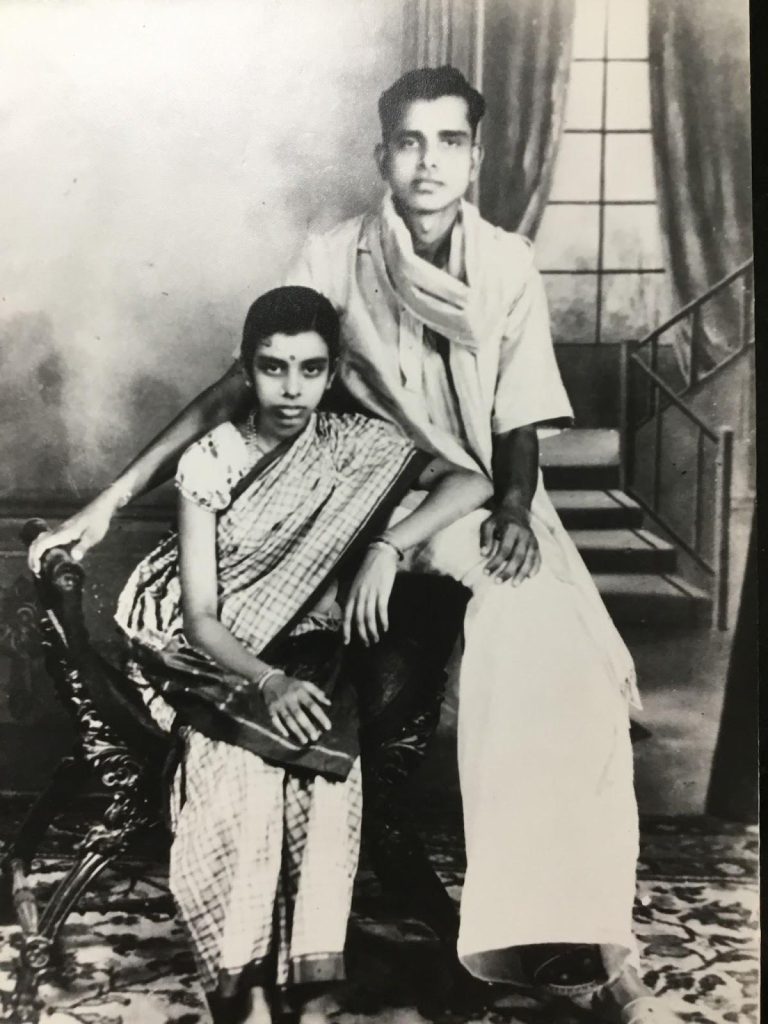
Just how many times do we encounter such headlines and choose to simply turn the page? Yet it was precisely this news piece that highlights the sharp contrast the pandemic has had on the bottom of the pyramid and the top, that prompted me to pen this blog and answer in detail the one question that I have been presented with, time & again, ever since I set up Rukmani Trust;
“Why a public trust to support rural India?”
Having spearheaded mainstream media houses for the longest time & when I chose to hang my corporate boots, the one thing my peers weren’t expecting me to focus on was this. Yet the more I think about it, I am sure that the germ of an idea was born in my childhood.
Growing up, living in Kolkata, I experienced my parents’ generosity towards not just our family members but also the community. I remember them setting aside a sizable percentage of their income to support the local community. They, in turn, were heavily inspired by the principles laid down by Swami Vivekananda & his spiritual master Ramakrishna Paramhansa, who believed in the service of society. This left a lasting impression on my psyche. As a young child, I remember making elaborate plans to make life comfortable for people at large, acquiring wealth and distributing it to those in need. In the meantime, my life was taking shape, and the nuts and bolts of receiving an education and then a corporate career kept me occupied. A decade ago, my dream of helping communities re-emerged, & I sat to write down what I should do with my wealth when I am no more. It turns out nobody likes thinking or talking about death, except perhaps lawyers and undertakers. As a result, most of us depart without leaving behind a will. I was sure that was not what I wanted. I believe it is necessary to document your wishes with clarity while you are physically agile and mentally alert. Besides, I wanted to leave behind a fitting legacy of a life that I, to the best of my ability, had lead with discipline, integrity, fairness and generosity.
The one thing that I spent a lot of time thinking about, therefore, was how the movable assets I had built could enable the community. I did not believe in a temporary fix. Above everything, whatever I did, I wanted it to make the community feel empowered not crippled.
The answer, for me, definitely lay in registering a public charitable Trust.
The Need for a Trust
Not many of us may know that there is a crucial difference between philanthropy and trusteeship. While philanthropy is mainly about giving away surplus wealth without necessarily questioning the economic system, which allows for such concentration of wealth, trusteeship enables the creation of a more wholesome definition of value. Trusteeship is based on the premise that you aren’t ever the wealth owner. At best, you are only its caretaker. It was George Soros, the iconic fund manager, who vociferously articulated that since all wealth is generated in a social and cultural context, it is never really private in any case.
Armed with these ideas of challenging the very concept of ownership, I registered a public charitable trust. The one thing that I was sure about going forward was that the trust would work towards furthering the cause of rural India. I have forever been mesmerized by the earthy yet simple approach of rural folks. Their discipline & simplicity is refreshing. They haven’t got their due by way of opportunities, led partly by the fact that the English-speaking populace is our benchmark for calibre as a society. While rural India may not be fluent in spoken English, their intellectual capacity is equal, if not more often, superior to their urban counterparts. What they lack are resources that are available to urban dwellers. There are enough and more examples of people who came from humble, rural backgrounds and made it big by the dint of their caliber. Think MS Dhoni, Mary Kom, Lovlina Borgohain, Mohammed Siraj, T Natarajan and many others, if one was to speak of the sporting arena alone.
For me, the scales were tilted towards rural India also because my forefathers were from rural India & had achieved desired success in their respective fields. Being a product of that lineage, I was clear that the public trust set up by me should support rural India.


Empowering and Educating the Girl Child
The one untapped lifeline of rural India is its girl child. In empowering and educating its girls, lies a massive, untapped potential. Educating girls not only builds stronger families but communities and economies. An educated female population, in turn, can increase a country’s productivity and fuel its economic growth. Some of the many areas, as per UNICEF that can benefit from women education include:
Investing in girls’ education transforms communities, countries and the entire world.
Girls who receive an education are less likely to marry young and more likely to lead healthy, productive lives.
They earn higher incomes, participate in the decisions that most affect them, and build better futures for themselves and their families.
Girls’ education strengthens economies and reduces inequality.
It contributes to more stable, resilient societies that give all individuals – including boys and men – the opportunity to fulfill their potential.
Although significant strides are being made worldwide to reduce the gender gap in education, sadly, there are substantial barriers to girls’ education and empowerment in the Indian context. We have a long way to go to ensure that every girl has the opportunity to complete secondary school. If anything, the access to education has been further hit by the pandemic and report after report has shown that the crisis has disproportionately affected girls.
There you go- it wasn’t rocket science for me to zero in on the trust’s focal areas. Rural India, and within that, it had to be education and skill development for its girl child! That settled, I set out to articulate the vision & mission statement for the trust, from which every other aspect of its functioning would emanate.
The next step was to zero in on the mode of delivery of education. Now that indeed has to be the subject of my next blog.
Till then, as they say in private news broadcasts (that I had the privilege to set up in India, albeit thankfully not in its current avatar), stay tuned and watch this space for more!